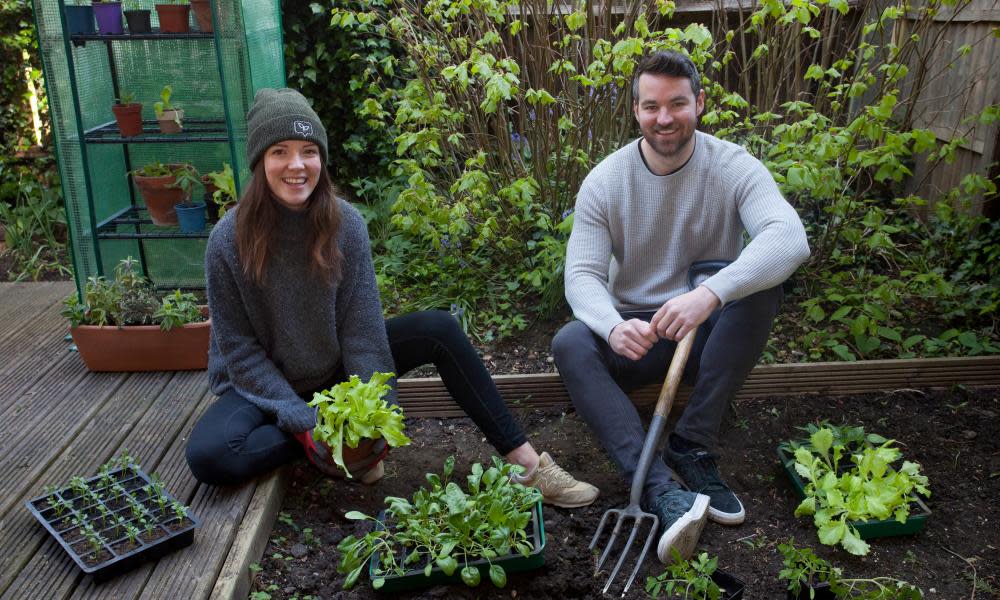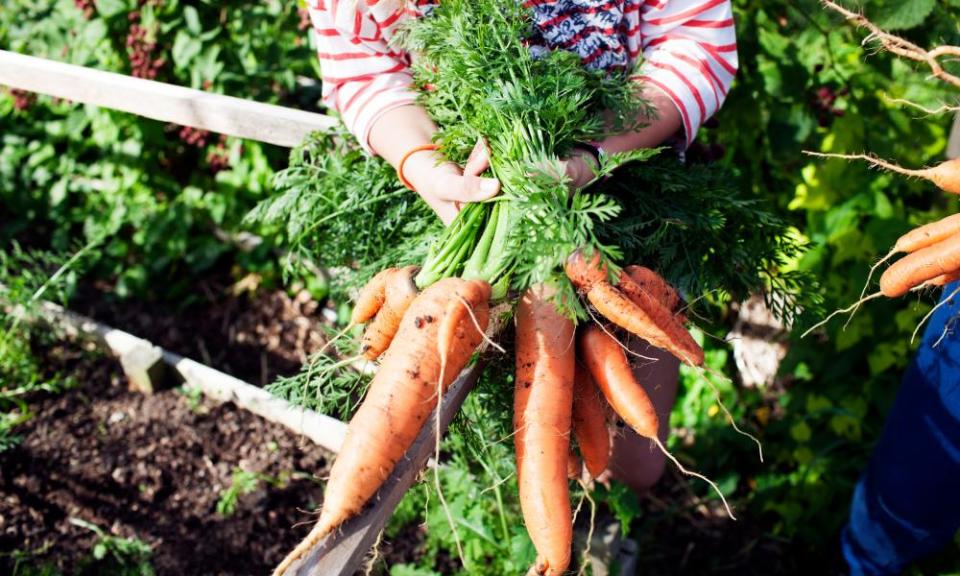Grow your own … in a rented plot in the neighbour’s garden

It started with a pot of basil on a windowsill, but soon Corrie Rounding was dreaming of onions and potatoes.
The problem was where to find the space in which to nurture tiny seedlings into big, beautiful vegetables. Rounding’s second-floor flat in south London doesn’t even have a balcony, and waiting lists for inner-city allotments have rocketed in the pandemic.
Nevertheless, Rounding, 29, will soon begin planting her own veg patch after agreeing to rent space from a neighbour who has more garden than he has time to cultivate.
The simple and pleasing idea of linking up people who want to grow their own food with those who have unloved gardens or bits of garden is the brainchild of that neighbour, Conor Gallagher. This week he will launch AllotMe, a digital platform aimed at making renting garden space as easy as Airbnb has made renting a spare room.
Gallagher, 30, who grew up in Belfast, said: “After I moved to London I saw how people wanted to eat more healthily, ethically and sustainably but faced barriers such as a lack of space or excessive cost.
“So many people have no garden or access to outside space, and obtaining an allotment through traditional routes is difficult verging on impossible. There’s a huge desire for sustainable living but often no way of satisfying it.”
As he spotted neglected gardens, especially unloved front gardens, he realised there were untapped reserves of outdoor space going unused: “So why not bring the two together?”
Even before the website has been officially launched, hundreds of people have signed up to rent unwanted garden space.
One in five local authorities have allotment waiting lists of more than 1,000 people, and two-thirds have waiting lists of between 100 and 400, according to the Association for Public Service Excellence. Almost nine out of 10 councils say there has been a noticeable increase in demand for plots during the pandemic.
Phil Gomersall, president of the National Allotment Society, said: “New sites are being created up and down the country, and planning authorities are asking developers to include allotment space in their plans. But there’s a lot more demand than availability.”
At his allotments in Leeds, where he has dug and planted for 27 years, the waiting list rose from four to 36 during the pandemic; another site in the city now has a waiting list of 170.

Gallagher’s hope is that AllotMe will be as revolutionary for food growing as digital platforms have been for short-term house rentals, taxi services and home deliveries. He concedes that not everyone will want a stranger digging and planting in the back garden but said: “Ten years ago, people would have balked at the idea of a stranger sleeping in their spare room.”
And, he added, the strangers may soon become friends. “My hope is that this will be community-based, with long-term relationships based on local supply and local demand.”
Despite the perception that allotments are the preserve of older people with time on their hands, much of the new demand is being driven by the millennial generation, said Gallagher. “These are people wanting to live in a more sustainable way, and who are interested in where their food comes from.”
Related: It’s official: allotments are good for you – and for your mental health
He adds: “There are also huge mental health benefits to being outdoors, active and growing things.”
Typical hosts might be busy parents of young children who don’t have time to cultivate their gardens, or older people who find that the physical work of gardening has become more challenging.
Plots are likely to cost renters between £15 and £30 a month, depending on size, with a percentage fee going to AllotMe. The website will include video tutorials on growing fruit and vegetables, and provide insurance cover.
Rounding has already acquired some tomato plants but plans to concentrate on low-maintenance veg – potatoes, onions, garlic, aubergines and courgettes – while she builds up her expertise.
“I know some periods will be more labour intensive than others, but I’m happy for this to be a year-round commitment,” she said. “Growing herbs was a lot more satisfying than I expected. Everyone likes to see a little green shoot popping up, don’t they?”

 Yahoo News
Yahoo News 
